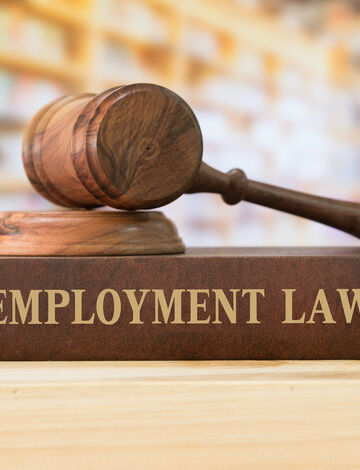Grievance procedure solicitors in Solihull
A formal grievance procedure will help to resolve disputes before they can escalate. Our employment law team will guide you in creating robust guidelines for your grievance procedures.
Employees should have the opportunity to raise grievances informally and formally. By offering clear guidelines, you can take control of the situation and help to find quick resolutions.
Every company large and small should have a procedure for managing grievances. When an employee has an issue at work, offering a simple path to a resolution can help avoid disputes and costly employment tribunals. Our employment law and dispute resolution teams will work together to help you to create and implement ACAS-compliant grievance procedures.
Your grievance procedures will also provide a template for employee misconduct and disciplinary procedures. Staff will feel more confident in your company procedures if they have a clear path to raise a complaint. We can help by reviewing existing procedures and drafting new procedures. If your company is growing, this is an excellent time to review procedures.
Understanding the grievance procedure
A grievance procedure is a formal way for an employee to raise an issue about their workplace. Putting steps in place to manage a grievance is the best way to ensure it does not escalate to legal action. And if the claim is taken any further, proper grievance procedures may help protect your business from costly claims.
The grievance procedure should be included in your Staff Handbook so that employees know the steps to take if they have a complaint. We can assist with every step in creating a robust grievance procedure that works for your business. Our employment law and dispute resolution teams will work together to create:
An informal grievance procedure
A formal grievance procedure
Guidelines for a grievance meeting
Assist in making a final decision on a grievance
An appeals process for employees
If you need help creating these vital documents, don’t rely on free templates. Seek expert advice from Pearcelegal to help create bespoke procedure documents that put your business interests first.
Frequently asked questions
What is a grievance and complaints procedure?
A grievance procedure gives employees a formal framework to make a complaint about any aspect of their work. While there is no legally binding procedure to follow, many employers find it helpful to have a framework in place and for it to be set out clearly for the employee as part of their contract of employment or Employee Handbook. This avoids confusion and ensures both parties are aware of their obligations.
How long should a work grievance take to reach a final decision?
This should be determined in your grievance procedure guidelines. Many employers take between 28 days and 90 days to reach a final decision on grievance procedures. Once you set a timescale, you must abide by it.
What is a malicious grievance?
A malicious grievance is made to cause harm or a nuisance. This could include defaming a colleague or manager or lying about incidents to try to damage someone else in the company. A robust grievance procedure can help to minimise this type of grievance.
Is there a time limit to file a grievance?
Employees should raise a grievance no more than 90 days after the day of the first occurrence. This should be clearly stated in your grievance procedure documentation to help employees understand their position.
Our specialists in Grievance Procedure

Nicholas Thomas
Managing Director

Hannah Smith
Assistant Solicitor
Expert advice for you Book a free consultation
The team at Pearcelegal will be delighted to discuss your legal matters and give you a no-obligation quote.






